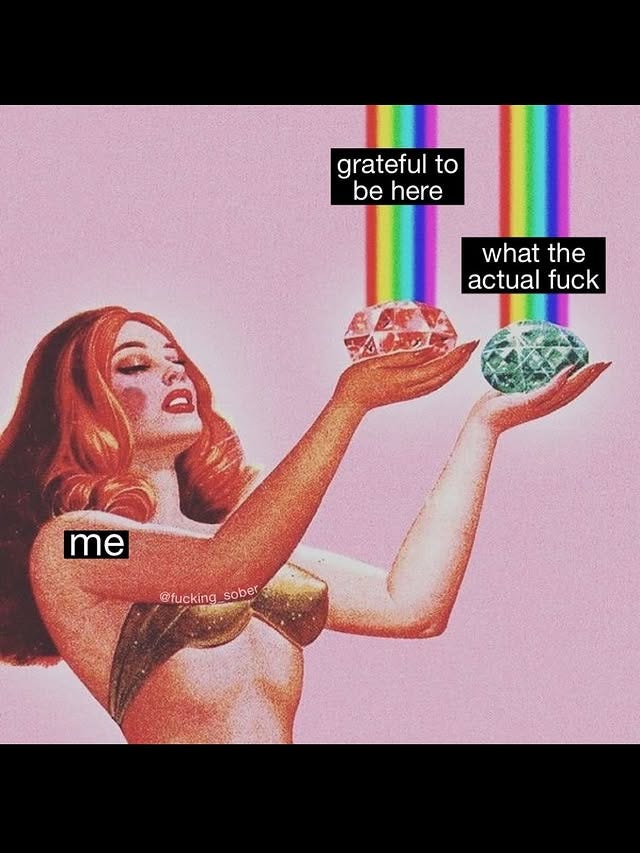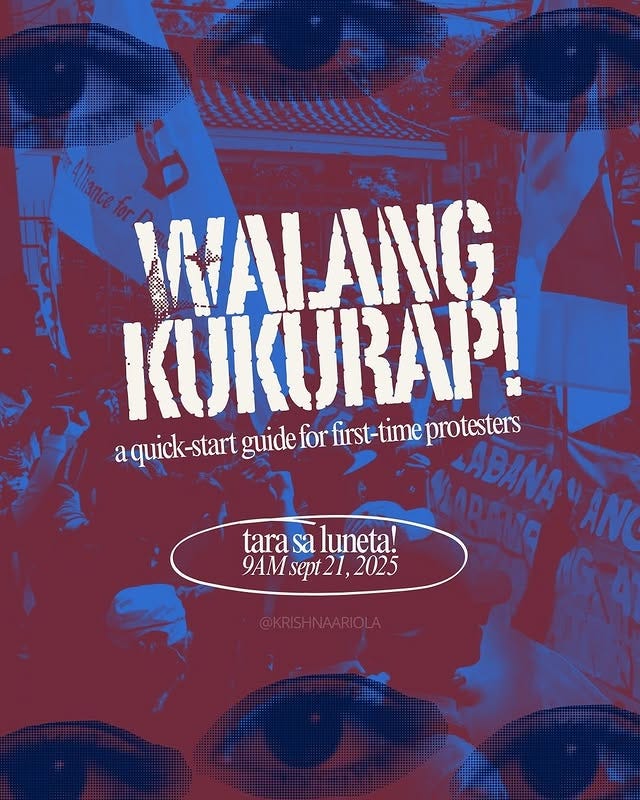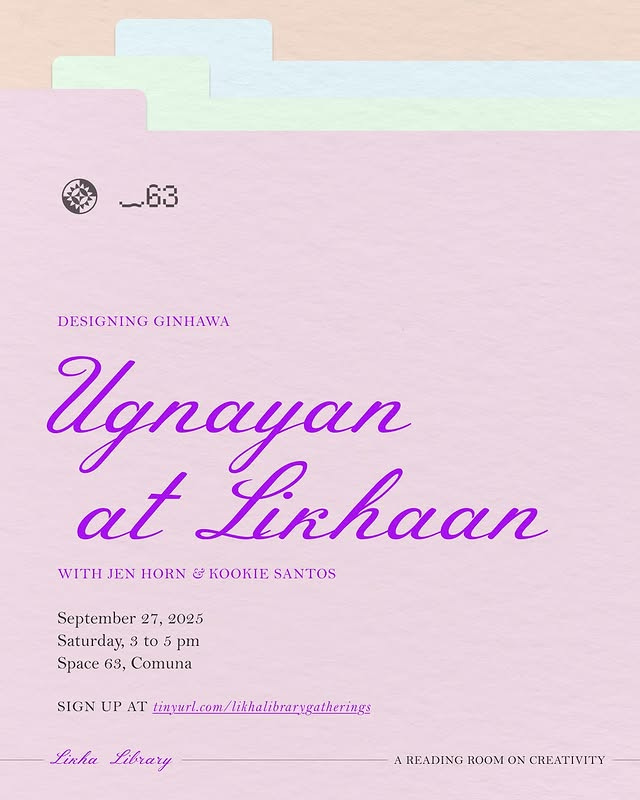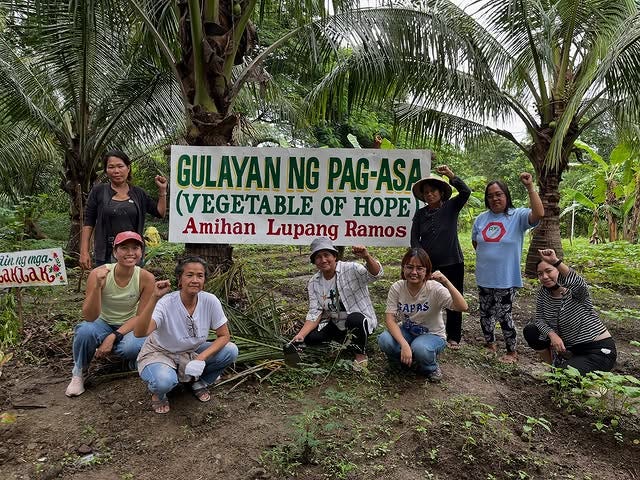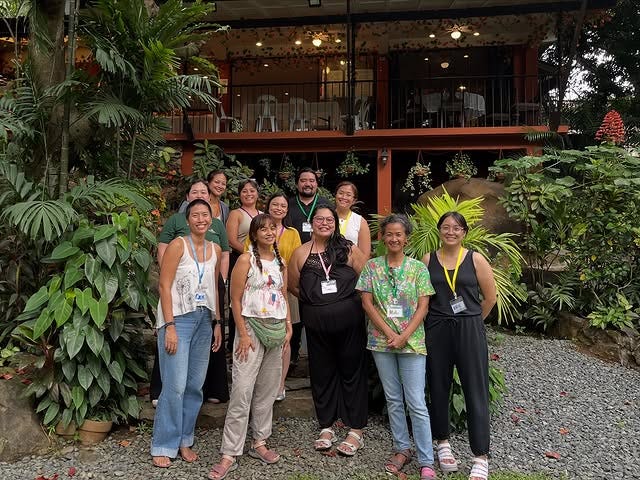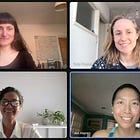4 Essentials in Co-creating Transformational Change
What might it take to create transformational change? Sharing my thoughts on how a sense of agency, community, slow urgency and trust are vital to transformation.
Hello, friends.
So many things have been happening lately in the world, in our own country, in government corruption and flood lack-of-control. At the same time, our individual lives don’t stop either, and much has been happening in my own life-work too.
However, in a world where we can often feel powerless, I wanted to write this to remind myself of our capacities to co-create transformational change when we return to:
a sense of agency (that we have the capacity to create change, and the activation to do something)
a sense of community (that our own wellbeing is connected to the wellbeing of our kapwa; and we don’t have to do things alone)
a slow or patient urgency1 (that we take time to pause and reflect on the best course of action, and do what we can today)
trust (that our existence and our actions matter; that we need to trust in ourselves, our kapwa and what we help unfold)
With these, I find myself flowing between audacious hope (that we can achieve things that might be hard to imagine with the current status quo) and radical humility (that we don’t assume we can know, plan, do and be all the things; which might sometimes border on unhelpful impostor syndrome) — both of which ask us to tap into collective creativity to cultivate the change we want to see in this beautiful world that we f*cked up as people.
I. A sense of agency
For me, the sense of agency is about our creative capacity to effect the change or transformation we want to see. It’s the feeling of “I/we can do something” and “I’m going to do something”.
At a recent dinner with friends, my friend Isa asked us: “How do you not fall into despair?”
I suppose it’s only natural to feel some hopelessness and fatigue from consuming all the media about genocide, racism, sexism, climate change, floods, corruption, gross abuse of power, etc. I get why sometimes, people just want to check out. The world is shit. But also, it still holds so much beauty and good. I’ve spoken to enough activists to recognize that:
The antidote to despair is action.
- Joan Baez
That action can look like different things to different people, and it can involve three different types of actions, as described by the late Joanna Macy when talking about “The Great Turning”2.
Actions for The Great Turning
HOLDING ACTIONS in defense of life
What it does: Slows down the destruction brought about by the Industrial Growth Society; Attempts to hold the line, to buy time for systemic changes to take place
Examples: Protests, petitions, boycotts, civil disobedience, exposés, cases against unlawful corporations or individuals
Tangible action you can take: Join a group for the upcoming protests on September 21, 9AM at Luneta park. If like me, you’re new to protesting, the below post is a helpful guide to prepare you for joining!3
TRANSFORMING ACTIONS to create foundations for our common life
What it does: Generates People-Powered structures that let people govern themselves and protect resources of the commons and for life-sustaining futures
Examples: Holistic measures of wealth (gross national happiness), renewable (and just) energy transition, community gardens, municipal programs, co-ops, creating and upholding policies that protect community rights (Writ of Kalikasan4)
Tangible action you can take: Participate in community-shared agriculture5 with Good Food Community; share freely without making everything a commodity / side hustle — to contribute to a Gift Economy6
SHIFTING ACTIONS to invite movement to new views or perception
What it does: Nurtures deeply held values and shifts the ways we see ourselves and the world; Attempts to redefine our wealth, our worth, our identity and sense of belonging
Examples: IP representation, community gatherings, creative expression, knowledge share programs, decolonization education, wilderness immersion
Tangible action you can take: Joining upcoming gatherings like those at Likha Library on September 27-28; expressive arts sessions with various facilitators (or ones I create with Likha Ginhawa, or other alumni of The Arts and Health Institute); International Design Conference on Designing for Collective Flourishing on September 26; book clubs like Tiny Shelf / Silent Book Club
Recently, I’ve also been inspired by our visit to the women farmers of Kasama-LR in Lupang Ramos in Dasmariñas, Cavite. It is one group, one movement, but it is also all three actions of holding, transforming and shifting — with their protests for right to land, their community garden or Gulayan ng Pag-asa, and their engagement with various youth, advocacy or educational groups that visit them to learn more about their struggles and successes as a community.
They till not just the land, but also our social soil for a future for collective flourishing, rooted in the wisdom of working with nature and reciprocity.
A sense of agency doesn’t require a lot of material resources. What it asks of us is to assess our reality, recognize our own role or responsibility in transforming that, and the audacity to just try things out even without certain outcomes.
What might we try even if we might “fail” — given what we know, what we have, and what we want to work towards?
II. A sense of community
Sometimes, we just want to hole ourselves up — maybe at home, maybe in some scenic nature-y location — isolating ourselves from all the things that are happening around us. It is only in our bubbles of privilege that we are somewhat buffered from the immediate impacts of our polycrisis, but it’s a bubble that eventually has to burst. Our ignorance, isolation and inaction can only buffer us for so long.
Relationship-building often involves friction and inconvenience.
Our existence on this planet requires us to be in community with each other, to explore and expand the edges of our care — to widen our definitions of the “self” and of kapwa. To widen the circles of care we hold space for and with. Even when we feel incomplete, inadequate, imperfect, perhaps like an impostor, or worse, a hypocrite.
Do not demand that your smallest personal circle be pure before you start working on the broader circles of community and policy. Because that day will never come. Let’s dig in today to shift the system — and tomorrow and the day after.
- Leah Cardamore Stokes
Leah Stokes continues on to share about imperfect activism, saying: “The goal is not self-purification but structural change. […] ‘Hypocrisy’ is the process of admission in this battle.”
Our expressions of activism are necessarily incomplete, because transformational change is not something we achieve on our own. It is the concerted effort of several actors — living beings in a biodiverse ecosystem, each with our roles and contributions — that we are able to create a flourishing whole.
If we’re looking for different ways to co-create transformational change, it starts with going outside our usual circles.
Scroll back up to the section on Actions for the Great Turning. Which of those actions / circles feel outside of your comfort zone? If it’s not your usual crowd or event, and if it makes you a little uncomfortable to join, then my guess is that’s probably a good thing because it expands your view of the system.
When we expand our views and our circles, we expand the range of actions we can take and the potential impact we can create.
I’m grateful for the recent Daluyan circle I held, with people who are also holding space for me, for each other and their respective communities. I was encouraged by the fact that none of the participants had really met before, and by the diversity of the group — with individuals working in social enterprises, NGOs, church groups and corporations, encompassing more than just one circle of care.
What new spaces can we explore to expand our circles of care and collective transformation?
III. A slow and patient urgency
Then, there may be times when we feel like we’ve explored and expanded too much, too fast. Then, maybe we feel like we want to retreat and contract, and that we might burn out if we don’t. Ebbing in and out like the tides, rising and falling like the sea.
I go back to some of the things I wrote about Time in the post below:
…with some of the wisdom of Bayo Akomolafe, where he says:
In ‘hurrying up’ all the time, we often lose sight of the abundance of resources that might help us meet today’s most challenging crises. […] Slowing down is thus about lingering in the places we are not used to. Seeking out new questions. Becoming accountable to more than what rests on the surface.
I believe we should all have the skills to pause, reflect, deeply listen to what we and the system need, to ask ourselves different kinds of questions that allow us to meaningfully co-create change.
It’s part of what I hope to cultivate through the work I do with Ugnayan Cards, and also through my recent Daluyan circle. At the end of a full day together, it felt like we were just scratching the surface, and that we came away with even more questions. That even with the spaciousness, it was not spacious enough.
How might slowing down and stepping back support us in moving forward with more intentionality in transforming systems and not just surface events?
IV. Trust
Move at the speed of trust.7 Focus on critical connections more than critical mass — build the resilience by building the relationships.
- adrienne maree brown, facilitator, activist, writer, author, Emergent Strategy
There’s so much division, hate and mistrust in the world today, and that keeps us from moving forward together. Essentially, I think that what people are fighting for in the rallies at Luneta and EDSA on September 21, is for politicians and public servants we can trust, a system that we can trust — and a return to our humanity where we all act with the wellbeing of the whole in mind and heart — with social justice, fairness and truth.
Even in cause-driven spaces, we (myself included) can sometimes act in a way that is kind of “capitalist” when we try to “make change happen”. By this I mean that we can sometimes be eager to create change that we forget the relationship-building and trust-building that is essential for truly meaningful, lasting, systemic change.
Relationship and trust make the difference between transformational change from transactional change.
How might we create change ways that generate connection, instead of just extracting outcomes?
More than just trust in other people / our kapwa / the “social field”8, the trust I think we also need is trust in ourselves as people who are trying to co-create change, and trust in the process of transformation.
It may be slower than we’d like — non-linear, messy, uncontrolled, uncertain — but maybe things are unfolding as they should.
We may not know everything or have the skills to do everything, but we can do our best with what we know and what we have at this moment. And it can be enough for now. And we can continue to learn and do more and better.
What leaps of faith might we take when we believe in our collective enoughness?
So…I’ve said so much at this point (nearing the email length limit of Substack haha). I trust that I have written enough for now. I trust that you will continue reflecting on your own experience and context. And I trust that all our actions will amount to something.
I’ll show up here again next week.
‘Til then,
Jen
You can learn more about this from Coming Back to Life: The Updated Guide to the Work That Reconnects by Joanna Macy and Molly Young Brown.
These are just some of the posts around the protest, but there’s loads more! When I look back on this day, I want to know that I took my place among thousands of other Filipinos.
“Writ of Kalikasan is a legal remedy that provides protection of one's constitutional right to a healthy environment, as outlined in Section 16, Article II of the Philippine Constitution, which states that the ‘state shall protect and advance the right of the people to a balanced and healthful ecology in accord with the rhythm and harmony of nature.’” https://en.wikipedia.org/wiki/Writ_of_Kalikasan
When we participate in Community-Shared Agriculture, we pledge solidarity with farmers by pre-paying for their produce before we even know what they’ll yield. This allows us to buy seasonally and share agricultural risks with smallholder farmers.
Read more about it in Robin Wall Kimmerer’s book, Serviceberry, but also, here’s a quick wifi definition: “A gift economy is a system of exchange where valuables are not sold, but rather given without an explicit agreement for immediate or future rewards. Social norms and customs govern giving a gift in a gift culture; although there is some expectation of reciprocity, gifts are not given in an explicit exchange of goods or services for money, or some other good or service. This contrasts with a market economy or bartering, where goods and services are primarily explicitly exchanged for value received.” https://en.wikipedia.org/wiki/Gift_economy
This idea originated from Stephen Covey’s “speed of trust” concept, remixed by communications strategist Mervyn Marcano, and now used here by adrienne maree brown.
As Otto Scharmer or folks from Presencing Institute might put it.


